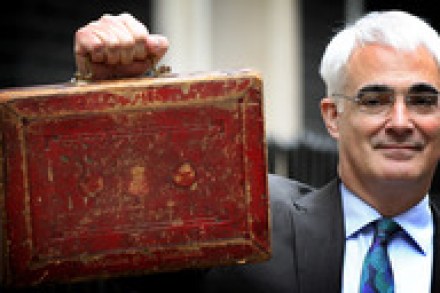Darling’s phoney Budget doesn’t change anything
Was that a Budget sufficient to the fiscal nightmare that we face? Well, I think we all could have answered that question before Alistair Darling stood up at the dispatch box, but now we can at least be sure: no, it wasn’t. The government’s overall spending plans remain roughly the same as they were in the PBR, there aren’t many tax increases to raise much money for the Treasury, and we’re meant to be all excited that borrowing is £11bn lower this year than previously forecast – at £167bn. It’s a shame that Darling increased alcohol duty, or we’d all be be out celebrating that particular success, I’m sure. If

















